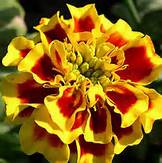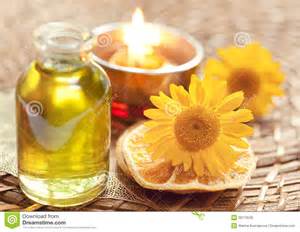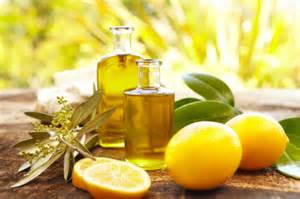












Lavender- Floral/Herbie
Lavendula officinalis, l. angustifolia
Character
Harmonious, Calming, Healing, Caring, Compassionate, Embracing
Use To Counteract These Negative Attributes
Anxiety, Irritability, Stress, Tension, Mental exhaustion, Panic, Hysteria, Shock, Apprehension, Fears, Nightmares, Insecurity, Lost Inner child,Restlessness, Moodiness, Distracted, Addition, Obessionalbehaviour, Trauma, Conflict, Emotional violence, Agitation, Jitteryness, Deoression, Psychosomatic illness, Nervousness, Worry, Over-excitedness, Burn-out.
Use Fot These Positive Attributes
Secure, gentle, Compassionate, Balanced, Reconciled, Vital, Clarity, Comforted, Acceptance, Inner peace, Relaxed and alert, rested, Aware, Emotionally balanced, Spiritual growth, Meditative, Visualization, Rejuvenated.
Lavender could be called the mother, or grandmother of essential oils, able to care for a multitude of physical and psychological problems and, like a mother, accomplishing several jobs at the same time.
Lavender is the most useful essential oil and is usually the first that any student of aromtherapy learn about. It is the preferred essential oil of the nursing professions, who use it more for its calming and sedative properties rather than for the anti-infectious ones.
Lavender is the most commonly used essential oil in aromatherapy treatments and aroma-psychology research. There are several species of Lavender which are distilled to make lavender essential oil, and there are subtle personality variations between them, but here we are looking at the personality of the lavendula officinalis or angustifolia, the most commonly used species.
Lavender is the perfect balance between the masculine and feminine traits that are within us all, and that all grande dames exhibit boldly. Lavender is completly mothering in its personality - electric, formidable, yet gentle ad kind, and the perfect embodiment of Mother earth.
Embracing lavender is direct, pure of thought, brave and humble. It makes men gentle, and women strong.
Even in times of hardship a lavender personality bravely continues overcoming obstacles that are placed in their way, having the ability to give generously of themselves - caring for others, often with gentleness and sacrifice.
This type will be the first to offer to hold the baby to lull it to sleep, and the first to come to the rescuein times of trouble when help is needed. lavender seem to have an an inexhaustible amount of energy to c all upon, which their own calm exterior belies , and are the ones who will sit and talk to your plants or feed your cats when you go away, and who'll do the shopping for sick neighbours, and are always ready to listen.
The Lavender personality loves the earth , the flowers and trees, and will fill their homes with living things if they can. True lLavenders have an in-built correctness and spitituality. Nurses, buddies and foster parents are just some of the roles taken on by people who have a fair proportion of Lavender in their makeup.
They're also found fighting for a cause , but one usually nearer home than the rain forest - such as for fcilities for nursing mothers, or the physically disadvantaged. Whatever they put their campaigning energies into, it will be for a home issue, in one form or another.
Lavender types are often subject to flights of fancy and are happy to search for the elusive solution to life's problems - which is an aspect of mothering to a certain extent.
A male lavender is often drawn to the Ghia principle and New-Ageism, and will go looking for the godess within himself, or may go into farming where the mothering instinctcan have expression in the care of animals and crops. Whether male or female.
Lavenders are very versatile, and if stuck in a city job they'll be drawn to volunteer jobs such as helping the homeless and otherwise dis-advantaged.
A negative Lavender will be highly nstrung, wound up, and absorbing energies off everyone, never discharging them. They won't disclose their problems or troubles to anyone as they believe they must always care for others, overdoing it, never resting or sleeping properly.
Unexplained headaches and migranes are conditions which afflict this personality, along with aches and pains - which go away as soon as everything returns to normal.
Lavenders are gentle men and women. These intelligent people often become teachers but whatever they do, they will be kind-hearted, benevolent, humane, worthy and valuable.
Reference:The Fragrant Mind: Valerie Ann Worwood












Positive Mind, Mood & Emotion - Alertness
Alertness
Twenty thousand years ago, being alert was the difference between life and death. You couldn't wander around the country side ignoring the sound of a twig cracking behind the bush (an animal about to charge) or the site of a plant crushed on the groung ahead (potential dinner nearby). Well you could, but you might not have lasted very long or had much to eat.
Being alert is a survival mechanism , now as ever. Women walk down the street late at night acutely aware of the footsteps behind them, and alert to shadows in the alley upahead.
Drivers are alert to the vehicles in front and behindand mothers are alert to their children's movements in the playground. We are all alert, to greater or lesser degree because our life or someone else's life might depend on it.
Also, our future and job might depend on it and managers make sure they're alert in meetings while students must be alert to what the tutor says if they want to stay on the course. Certain jobs require more alertness than others.
If a pilot, air-traffic controller or train-driver are not alert, just for a minute, a major disaster can result.
Being alert is more than vigilance and attention, like soldiers on a guard. It's about mental responsiveness,being alive in the head. Alertness extends beyons our physical surroundings, it's about being alive to the people around us too.
Can we hear the twig breaking and can we sens what people are feeling? Alertness is not just about staying alive, it's about being alive - on the ball, in the game, sensitive.
Essential Oils That Help To bring About Alertness
Basil, Black Pepper, Cardamom, Coriander, Cinnamon, Juniper, Petigrain, Thyme, Eucalyptus, Peppermint, Rosemary, Pine, Grapefruit, Bergamot, Lime
See methods of use Chart 5.1 for oils which should not be used in the baths.The following two blends can each be diluted into 30ml base oil and made into stimulating massage oils, or made up into a synergistic blend
Using these proportions and use 5 drops in the bath, or 1 to 3 drops in inhailations, or 8 drops in one of the room methods.
Alertness Blend 1
Juniper 14 drops-Pine 8 drops-Rosemary 8 drops
Alertness Blend 2
Grapefruit 10 drops-Lime 10 drops-Black pepper 5 drops-Peppermint 5 drops
The following blend is for use in diffusers only. Again, it is stimulating and helps make one alert.
Diffuser Blend Alertness
Eucalyptus citriodora 15 drops-Peppermint 5 drops-Basil 5 drops.
Reference:The Fragrant Mind: Valerie Ann Worwood












JASMINE-Floral - Jasminum Officinale,J. grandiflorum, J.sambac
Character
Euphoric, Sensuality, Welcoming, Intutive, Soothing
Use To Counteract These Negative Attributes
Depression, Anxiety, Pessimism, Tension, Indifference, Repression, Bitterness, Jealousy, Low Self-Esteem, Guilt, Emotional frigidity, Emotional abuse, Emotional violence.
Use For These Positive Attributes
Uplifted, Confident, Sexual, Assertive, Relaxed, Optimistic, Open, Sensitive, Harmonized, Aware, Profound, Inspired, Joyful.
Jasmine Personality Profile
From the top of their head to the tip of their toes, the Jasmine personality is pure femininity. We're talking womanhood in full bloom. Jasmine is a no-holds barred personality, the passionate seductress, gentle and charismatic, bewitching all who come into her presence. Before all the men reading this go rushing out to find one, let me say that ultimate femininity can dwell in the heart of most women but only the true jasmine has the courage to expose it to the world.
Jasmine are beautiful from within, whether they're a girl on the cover of a western magazine, or a tribes-woman in the Amazon. Their beauty has the beauty to transcend the daily battles of existence;it's a glimpse of the archetypal female, Mother Earth - giver of life. Jasmines are the mermaids that touch the hearts of man, the petal that drifts gently by on the breeze. No wonder that this personality, like perfume, has enchanted the world since time began.
Jasmines, are joyful, happy people, comfortable witj who they are.They have no wish to stop enjoying the sensuality of their surroundings or fabulous objects, and have no wish to become part of androgynous society. They enjoy all the things that are generally considered, in the western world to be essentially feminine - fragile silk underwear, perfume, the touch of cashmere against their skin, or the sweet smell of a new-born babe. If they can afford it, they'll dine on strawberries and champagne and, whatever their financial status, will enjoy the sight and the aroma of flowers. Jasmines have no intention of forsaking these pleasures for anyone.
Jasmine won't stand for sexual harassment and anyone bold enough to attempt it with them woill recieve a barrage of abuse powerful enough to blast them on to another planet, but are flattered when someone suggests that they are looking nice, and enjoy old fashioned courtesies and thoughtfulness- which they aslo give to others.
Whether they're brunette, blonde, black or red-headed, whether they're nine hours or ninety years old, whether their pretty or ugly by conventional standards, jasmines will have people queuing up just for a smile.
They have a wonderful ability to really listen and the time and attention given to others instils confidence in them. Past lovers will remember jasmine with a smile, and Jasmine will remember every lover and friend they've ever had. Usually independent, these are intelligent, assertive, confident people.
Having a great sense of humor , Jasmines are great fun to have as friends - imaginative and alive. They'll no dull moments with them.They're the kind of friend you can call at midnight after a dreadful day, without worrying whether they'll be upset that you bothered them so late.
Jasmines are passionate lovers and understand the spirituality of sex, enjoying it without guilt or hang-ups. It doesn't matter tothem whether the soulmate is rich or poor, just as long as they're right for each other.
Jenny is a Jasmine personality, a social worker who fights for her clients in court, not missing a trick as she presents an argument, then sends the sweetest smile across the room to the magistrates. She wears perfume and exquisite fabrics and somehow manages to get her way every time, without realizing how she's done it. The charm of the Jasmine personality is in-born, and subconscious most of the time. This is what is so attractive to other people.
The male Jasmine personality is charming, charismatic and at ease with his femininity. He is devastatingly attractive to the opposite sex, as jasmine female are to men. he'll be able to hold his peers spellbound as he recounts tales, about his latest passion, over lunch. The male Jasmine uses his sensuality to get what he wants more consciously than the female, and can flirt with both sexes. Jasmines can be very unnerving if you're not used to them - particularly at work.
After a heated debate they may storm out of the room but, disconcertingly, almost surrealy, will find time to touch the petal of a particularly beautiful flower as they pass. This personality is found in every kind of job although they're happiest in those in which they can use their instinctive intelligent and behaviour.
They'll be unhappy as an accountant, but will enjoy the challange of physics. They also make good designers, artists and gardners.
Jasmine can become depressed at the discord in today's life, and be self-destructive. Indeed, negative Jasmines can be lethal to themselves. Passionate jealousy can become a serious problem and, as they turn their passion inwards, can become addicted and obessive.
Of course, this affects everyone around them, which makes them worse , and Jasmine can become paranoid, miserable and prone to emotional illness.The depths of emotion that Jasmine can reach can only be truly understood by another floral, also delicately balanced between the conscious and the subconscious.In negative mode, jasmine can make every one's life hell on earth, and can easily destroy their own careers and relationships.
It takes a long timefor them to pull themselves out of the mire. and they require a lot of hel. Fortunately, nearly always, they have generated many friendships and, in these times of stress, the chaff is separated from the wheat. After they recover from a negative phase, Jasmine will carry on an air of fragility and melancholy. This doesn't affect their passion, however, and it even makes them more desirable to some.
This joyful personality is often attacked by those who don't understand just how fragile they may be feeling, and this can lead to all kinds of problems. However, if you want warmth and gentleness, with passionate benevolence, ther is no other personality like the true jasmine.
Nicole Perez: MIFA Reg., aromatherapist and teacher:
'The character of Jasmine is represented by the two Js - as in Jasmine for Joy. This, to me is the true chaacter of Jasmine. Jasmine has the most uplifting and neautifying effect on people. It elevates us to higher spheres, it is also renowned for increasing sexuality as well as personal charisma.'
Reference: The Fragrant Mind: Valerie Ann Worwood.












Juniper personality profile
Frutie/Woodie - Juniperus communis
Character:
Cleansing, Purifying, Sacredness, Visionary
Use to counteract these Negative Attributes
Nervous exhaustion, Emotional exhaustion, Guilt, Lack of self-worth, Dissatisfaction, Anxiety, Abused, Listlessness, Weakness, Transience, Emptiness, Conflict, Defensive.
Use Foor These Positive Attributes
Self-worth, Spirituality supported, Peace, Inner vision, Uplifted, Strength, Vitality, Cleansed, Meditative, Conviction, Sincerity, Enlightened, Wisdom, humility.
Juniper Personality Profile
The Juniper personality is radical in that they have no concern for human authority, preferring to be directed by their intuition or religious belief.
They have a reverence for anything sacred and will inevitably take a spiritual path through life - Whatever form that may take. As children they may be drawn to the church or other spiritual places, without knowing why and even if their parents never go to them.
One young man I had as a patient always had the desire to go to church but was never taken by his parents so joined the local youth centre held in the church hall and would pop into evensong service every day on his way home from college - and his mparents never knew a thing!
The Juniper personality doesn't consciously seek out spiritual places, but just seems drawn to them. The Juniper personalityhas a profound spiritual ease, which is obvious to all who come ointo contact with them.
This doesn't mean that they are religious fanatics, in fact they may never tell you how they feel about spiritual matters, apparently feeling this is a private matter between them and God. This spiritual thread runs through everything Juniper does through life.
Juniper is also a personality of Spring - of things fresh and new. To others, it sometimes appears that Junipers are immature because they take such a delight in new experiences and knowledge. This is a mis-judgement.
However because Junipers are simply not afraid to enjoy themselves in a way that expresses their delight.
They rejoice in simple pleasures like meeting new people, taking a trip to the country, having a drink with friendsor lunch with the family.Although these things would have been experienced many times before, each time is like the first to them, fresh and new.
This actually a very endearing quality because it show Juniper's apprecation of the uniqueness of each occasion and the fleetingness of the moment, and their ability to live in the present time.
Junipers always have time for other people. They'll invite you along to whatever activity they may be going to not out of obligation, but because genuine pleasure is taken in sharing your company.
This actually a very endearing quality because it show Juniper's apprecation of the uniqueness of each occasion and the fleetingness of the moment, and their ability to live in the present time.
Junipers always have time for other people. They'll invite you along to whatever activity they may be going to not out of obligation, but because genuine pleasure is taken in sharing your company.
When they're negative, Junipers appear very vulnerable, as if their very soul is being attacked. They become uneasy among other people and dis-quieted by all manner of things. Anyone used to their usual easy-going nature may sense the disquite that is being generated.
During these bouts of doubt and anxiety Junipers can become very weak-spirited, depressed and exhausted - as if they've fought an enormous battle. Their faith never falters though, which is a great strength.
No matter what life throws at them juniper will always pull through and once again laugh and believe in themselves and others.
junipers are best suited to professions which allow them freedom of thought and speech. They don't take kindly to authority or to being the underdog, and are best suited to jobs in which they can be left on their own to carry out the work in their own way although they can have a wishful nature, approaching things in ways that are not always practical or efficient.
This type of person has difficulty choosing romantic partners because they eed someone who understands why they require to withdraw into themselves for inner reflection, without feeling excluded.There are many personalities Juniper is not compatable with and they often wrongly feel that they will never find their soulmate or true love.
Teddy Fearnhamm IScB France, MRQA aromatherapist and teacher.
'Definitive personality; Peter Pan/Juvenescene. Clears and detoxes the mind as well as body - promising a fresh vitality and promoting the desire to live up to our exopectations and the dreams we had when we were very young.
Reference:The Fragrant Mind: Valerie Ann Worwood













HYACINTH - Floral - Hyacinthus Orientalis
CHARACTER
Gentle, Trusting, Soothing, Enlightening
Use To Counteract These Negative Attributes
Instability, Stress, Repression, Apathy, Lovesick, Dejection, Distress, Grieving, Sorrow, Powerless, Regret, unforgiving, Naivete, Dependency, Apprehension.
Use For These Positive Attributes
Calming, Forgiving, High self esteem, Perseverance, Trust, Faith, Courage.
Hyacinth Personality Profile
The Hyacinth personality is forgiving and trusting, and this personality's gentleness and good nature is apparent in everything they touch. They love beauty and beautiful things and can decorate a room exquisetly simply by using their ingenuity and artistry and a few pots of paint, taking immense trouble over every little detail.
When you come for lunch the table will look fablous with little pretty touches to catch the eye. Of course, there will be flowers! That goes without saying. Indeed, Hyacinths are happiest when they are tending gardens and plants and taking care of animals (who don't talk back).
Having an unshakable belief in people, Hyacinths think that good will always triumph over evil. Nedless to say, they are often disappointed. Their faith is in the human race is a virtue that is easily taken advantage of, particularly by those with no scruples.
Time and time sweet Hyacinth will be drawn into plans with which they don't really want to be involved and schemes that are detrimental to their well-being. Relationships are just the same, and Hyacinth is just the personality to choose the wrong man or woman to be their life partner- one who will strip them of all their emotions, and their money! They try to make the best of it because that's how they are!
Hyacinth's are very mindful of other people's feelings and love to be privy to their secrets. They donn't mean to pass them on, but do, sometimes thinking other people won't repeat what they say. Hyacinth never seems to understand that some people live vicariously through others and need interesting titbits of information to keep their lives exciting, and Hyacinth likes talking too. So, innocently, Hyacinth inadvertently passes on secrets, not realizing that they may be the subject of discussion at a dozen social events before running out of steam!
Hyacinths never have any trouble talking about their own problems, usually to do with the opposite sex and no matter how naive and caring they are, they can drive the nore assertive types, like Bergamot, to distraction. Hyacinths can take on almost any job provided that the circumstances are right. For example, they make good sales people only so long as they have faith in the product; they make good secretaries and assistants so long as the boss is honest with them and the job doesn't entail any underhand dealings.
They'd be marvellous at animal breeding and any job involving flowers and plants. Although they love music, dance and theatre, these professions, even on the administrative side, are much too cut-throat for Hyacinth.
Negative Hyacinths often emphasize their fragile, delicate nature to get sympathy if all else fails, creating the illusion of a tragic personality, and can act out this role to the full, particularly if they find it working to their advantage. However, tension, stress, and stress-related disorders are invariably genuine, common to this personality type.
Hyacinths make good Samaritans - listening to people in troubles and, being basically very charitable, would be happy working in any capacity in the charity field. Being very intuitive and known as 'sensitives', these are nice, gentle, soft people who need space to breathe and be who they are - without any interference.
Reference: The Fragrant Mind: Valerie Ann Worwood.
- Home
- Addiction
- JASMINE- Floral - Jasminum Officinale,J. grandiflorum, J.sambac
- History of Drugs-4
- History of Drugs
- History of Drugs-3
- The Somatid Connection
- Rosemary-Personality-Profile
- Personality In Perfumery
- Personality Tests
- Cinnamon - Personality profile
- The Water Connection
- Mind-Mood-Emotion-Quick Reference Chart - S - Un
- History of Drugs-5
- Mind-Mood-Emotion-Quick Reference Chart - Un - W
- Emotional-Healing Problems-A-B-Positive and Negative Mood Charts
- Emotional-Healing Problems-B-H-Positive and Negative Mood Charts
- How Essential Oils Work On the Brain
- Cardamom Personality Profile
- Essential Oils Used For Emotional Healing-A-M
- Lavender- Floral/Herbie
- Positive Mind, Mood & Emotion - Alertness
- Juniper personality profile
- JASMINE- Floral - Jasminum Officinale,J. grandiflorum, J.sambac
- HYACINTH - Floral - Hyacinthus Orientalis
- Emotional Healing Introduction - 2
- Emotional Healing Introduction
- Memory Enhancement, Mental Clarity and Efficiency
- How To Get Through Life In One Piece
- HELICHRYSUM (Immortelle or Italian Everlasting)
- GRAPEFRUIT - Fruitie - Citrus paradisi
- The Art Of Smelling - Which Method - Aromaprofiles
- The Art Of Smelling
- GINGER PERSONALITY PROFILE
- Geranium - Pelargonium graveolens Personality Profile
- Frankincense Resinie - Boswellia Carteri
- Quality and Purity - 2 - AromaProfiles
- Quality and Purity - AromaProfiles
- ChemoTypes - AromaProfiles
- Adaptogens - AromaProfiles


